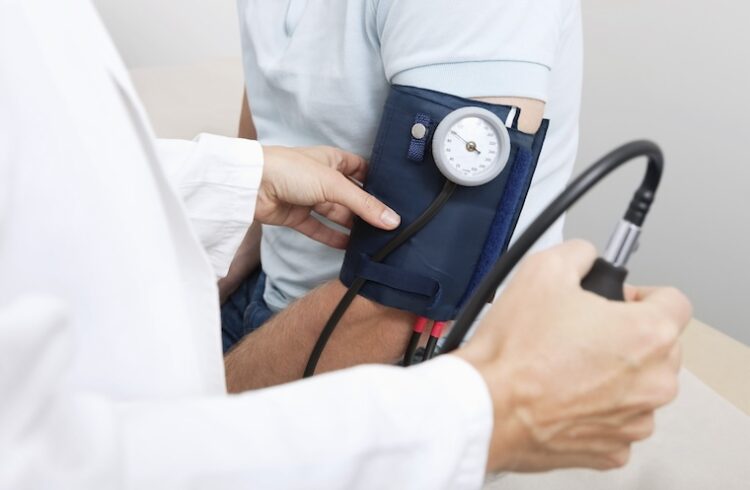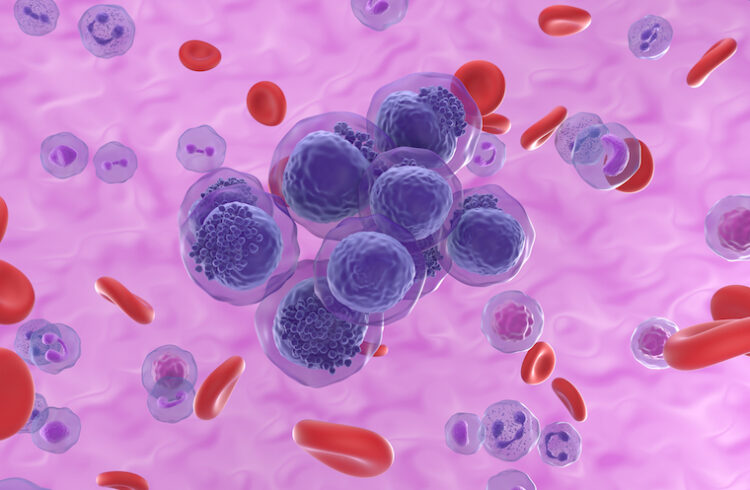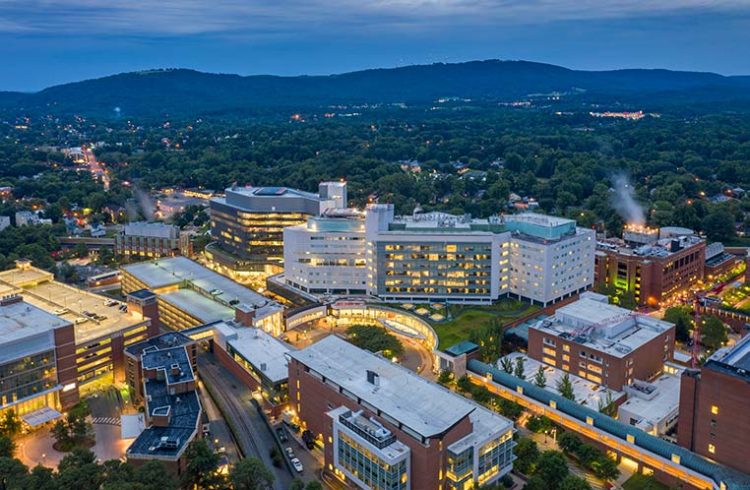
UVA Health’s Steven L. Zeichner, MD, PhD, and his team have made an antibody discovery that could explain some of the most perplexing mysteries about COVID-19 and long COVID.
Errant antibodies that regulate chemical reactions the way enzymes do could explain low blood pressure and other persistent symptoms that plague patients after COVID, new research from the School of Medicine suggests.
Researchers led by UVA’s Steven L. Zeichner, MD, PhD, previously discovered that rogue antibodies that act like enzymes (dubbed “abzymes”) are produced by a person’s immune system after some COVID-19 infections. Enzymes control the thousands of chemical reactions required for life, so if a person’s immune system starts making new antibodies with enzymatic activity, those antibodies could negatively affect many important bodily processes.
The scientists were unsure, however, if these abzymes also developed after patients recovered from the initial COVID infection. In new follow-up research, they confirm the presence of the abzymes in patients convalescing from COVID and found that the enzymatic activity of the antibodies correlated with blood-pressure problems.
The findings could open the door for new treatments for potentially debilitating Long COVID symptoms and potentially other problems that people develop after viral infections, the researchers say.
“After some viral infections, including COVID, some people develop debilitating symptoms. Although much research has been done, the causes of these problematic symptoms remain unclear. Long COVID, which can include a large number of very difficult-to-treat symptoms, is a very difficult example of a post-viral disorder,”said Zeichner, a pediatric infectious disease expert at UVA Health Children’s. “Long COVID and other post-viral disorders are now mostly being treated symptomatically. The treatments are not aimed at the ultimate cause of the problems. If we could better understand in detail the causes of these post-viral disorders, including Long COVID, we would have a target for the development of new specific treatments for the problems.”
Understanding Long COVID
Up to 7% of people with COVID-19 go on to develop Long COVID, which can come with a wide array of symptoms, including persistent respiratory problems, exhaustion, “brain fog” and difficulties with blood-pressure control. Zeichner and his collaborators noted that some of the long-term symptoms associated with Long COVID do not manifest until after the initial COVID-19 infection has resolved, and this made the scientists suspect that a secondary reaction within the body, such as the immune responses to the virus, may drive the long COVID symptoms.
Abzymes, they believe, could be the culprit. These antibodies target the well-known spike protein the virus uses to invade our cells. To infect a cell, the spike binds another protein called Angiotensin Converting Enzyme 2, or ACE2, on the surface of the cell.
ACE2 helps the body regulate blood pressure. Because the spike protein specifically binds ACE2, that means that the spike protein has a negative partial copy of the part of ACE2 that binds the spike protein. Zeichner and his colleagues had the idea that when the body makes antibodies against the spike protein, sometimes those antibodies might then have a shape that looks enough like ACE2 to have enzymatic activity, like ACE2. In essence, a copy of a copy looks like the original object.
To determine if the abzymes could be at play in Long COVID, Zeichner and his colleagues looked at blood samples collected from 20 volunteers at UVA Health’s special clinic for patients recovering from COVID who had long-lasting respiratory symptoms. More than half the blood samples revealed notable signs of enzyme activity characteristic of ACE2. There was no significant association between having received a COVID vaccine and having abzymes, suggesting the virus itself was triggering abzyme production.
Because ACE2 helps regulate blood pressure by lowering it, the researchers went on to test whether ACE2-like abzyme presence correlated with problems with blood-pressure regulation. They had the participants go on a six-minute walk and found that those with higher ACE2-like abzyme activity were more likely to experience decreases in their systolic blood pressure, rather than the increase normally associated with exercise. Low blood pressure can be among the most troubling symptoms of COVID-19 and Long COVID.
“The work showed not only that the patients convalescing from COVID had antibodies that acted like the enzyme ACE2, those abzymes had affects on the physiology of patients representative of some of the problems that Long COVID patients experience,” Zeichner said.
The researchers say the new findings support the possibility of abzyme involvement in Long COVID. Further research is needed, they say, but the work represents a promising lead in the efforts to develop new treatments for patients who suffer from the life-changing condition.
“Low blood pressure is one of the problems that trouble Long COVID patients, but there are others, including problems with blood clotting, high inflammation and neurological symptoms. Some of these other problems involve processes that are controlled by other enzyme systems in the body,” Zeichner said. “One characteristic of abzymes is that they are not really very good enzymes. They do not catalyze reactions in the same highly specific way that regular enzymes do. So it is possible that abyzmes induced by COVID could affect many different physiologic processes beyond blood pressure regulation, including the physiologic processes that are involved in some of the other problems that Long COVID patients experience.”
He noted, however, that the researchers have much more work to do – work that is already under way.
“We are testing blood samples from other groups of patients with Long COVID followed at other institutions to see if what we have found represents something generally seen in a lot of patients,” he said. “Until now, we have tested blood plasma from Long COVID patients, which has more than a thousand proteins. We showed that when we take the antibodies away, then enzyme activity goes away, which is a good way of showing that the antibodies are responsible. But to make the evidence completely clear, we are also testing pure antibodies that have been made against the spike protein to determine if those pure antibodies act like abzymes.”
He and his team also hope to test the blood plasma samples to see what other kinds of enzymatic activity the antibodies may have and how those other enzymatic activities could affect patients.
“Post-viral syndromes, and Long COVID particularly, have affected the health of many people in very distressing ways. We are hoping that by doing careful studies to understand the initial cause, we can point the way to developing new therapies,” Zeichner said. “If abzymes do cause the problems, then it should be possible to develop drugs that inhibit those abzymes, or develop ways to deplete the abzymes from the body, or destroy the cells that are making the abzymes. We could then cure the disease, instead of just trying to manage the symptoms.”
Findings Published
The researchers have published their findings in the scientific journal mBio. The research team consisted of Yufeng Song, Frances Mehl, Lyndsey M. Muehling, Glenda Canderan, Kyle Enfield, Jie Sun, Michael T. Yin, Sarah J. Ratcliffe, Jeffrey M. Wilson, Alexandra Kadl, Judith A. Woodfolk and Zeichner. The scientists have no financial interest in the work.
The research was supported by the Manning Fund for COVID-19 Research at UVA, the Ivy Foundation, the Pendleton Laboratory Fund for Pediatric Infectious Disease Research and the National Institutes of Health’s National Institute of Allergy and Infectious Diseases, grants R01 AI176515, R21 AI160334 and R56 AI178669.
To keep up with the latest medical research news from UVA, subscribe to the Making of Medicine blog.



